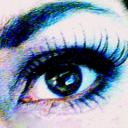Yahoo Answers is shutting down on May 4th, 2021 (Eastern Time) and the Yahoo Answers website is now in read-only mode. There will be no changes to other Yahoo properties or services, or your Yahoo account. You can find more information about the Yahoo Answers shutdown and how to download your data on this help page.
Trending News
Are philosophy and poetry related?
We share a similar category; Arts & Humanities....but are we related otherwise? It seems they are both a way to express yourself through words about how you feel; whether it's with emotion or logic and reason. Am I wrong?
What do you think?
Please elaborate.
I'm frankly overwhelmed. I'll leave it up to you guys. I can't choose. Sorry.
24 Answers
- ?Lv 79 years agoFavorite Answer
my answer is similar to the one i gave this morning to a similar q about this,. yes its related
many philosophers have been/are poets (as well as other type of arts)
and as these things are usually based on how someone thinks about a subject, i think they are related
i think its related by the simple fact that philosophical minds are usually also creative (in some way, some have been architects/inventors/musicians etc ) etc, so its seems its just a fact
:-)
- 9 years ago
It's a question that's answer swings both ways, Glenn. Primarily because philosophy encompasses so many aspects of life, as such there are a lot of varying definitions on what it is.
Many people have their own vague understanding or interpretation of what philosophy is to them, but what exactly is philosophy? To get an overall understanding let's take a look at a few of the main definitions pertaining to philosophy itself.
The word is derrived from the Greek word ''philosophia'' which translates to ''love of wisdom''.
1. The study of general and fundamental problems, such as those connected with reality, existence, knowledge, values, reason, mind, and language, based on logical reasoning rather than empirical methods.
2. Love and pursuit of wisdom by intellectual means and moral self-discipline.
And my personal favorite!
3. The academic discipline concerned with making explicit the nature and significance of ordinary and scientific beliefs and investigating the intelligibility of concepts by means of rational argument concerning their presuppositions, implications, and interrelationships; in particular, the rational investigation of the nature and structure of reality (metaphysics), the resources and limits of knowledge (epistemology), the principles and import of moral judgment (ethics), and the relationship between language and reality (semantics).
What we can all agree on is that it is most certainly a study, one that appeals to people who have a passion for wisdom, the qualities of wisdom being experience; knowledge; and good judgment.
My personal interpretation between the two are that poetry is the subtle study/art of explaining and revealing the nature of beauty within existence, but beauty is a subjective term.
A philosopher has an insatiable appetite for knowledge, and is always analysing the structure of life and our world with logic to find reasonable answers to life and existence.
So philosophy can be seen more as the study of life and everything revolving in and around it, while poetry is the art and practice of finding beauty within it. Though of course, we come back to the subjectivity of beauty which allowes it to be applied to anything given the opinion grants it so,If so then one could say that philosophy has beauty and if said person has the imaginative awareness, and the sense to express this meaning felt, then it could be said that, and would be accurate if this person perceived philosophy as poetry, as this is the criteria in which the definition of poetry follows.
So in a sense it reminds me of the chicken or the egg causality dilemma, which came first? But in this case it would be which governs the other? There is no right answer. My personal analogy is that poetry and philosophy are like yin and yang, light and dark; they're two sides of the same coin as they can both be applied to each other and be accurate in doing so.
See what I have done here? I have with logic and reason given due reason as to suggest why they are connected ; that is the definition of philosophy through action, and that is also poetry, for one is all, and all is one.
Don't ever let anyone tell you that the two are not related in any way, of course they are.
- smallLv 79 years ago
To my mind a mere description of some beauty or ethos with flowery rhyming words is not true poetry; it ought to be built over a deep philosophical thought or idea in order to be potently meaningful and that's where the commonality between poetry and philosophy begins..... on the other hand, for the true thinker, philosophy is like soothing poetry or music.
In summary, there really isn't much of a similarity though they can coexist wonderfully, reinforcing each other.
- 9 years ago
Philosophy is related to everything in a way. So in that sense yes. Aesthetics is a branch of philosophy, and poetry is considered within it. Aristotle actually wrote a book called "poetics". The whole idea that poetry and literature can comprehend some aspects of being or existence which reason and logic cannot is a philosophical idea. Romanticism was a philosophical movement as well as a literary and political one.
There are also different ways of doing philosophy. Go read Nietszche and you'll see that in most of his work he is very poetic and very expressive. Some poets are often quite philosophical too, was Herder a philosopher or a poet?... He was both.
Read works in the the analytic/positivist tradition of philosophy though, and you'll see how technical and unpoetic philosophy can get. That sort of philosophy is more about uncovering and laying bare the logical prerequisites of our existence as a basis for the pursuit of science, it is almost anti-poetic because it eschews emotions and ambiguity.
These very different perspectives argue for specific concepts of philosophy, so the answer to your question depends on how you define 'philosophy' and which tradition of it you are operating within.
- No MoreLv 79 years ago
Poetry can express how people feel about things going on in this world...some of the poetry I write is not just my feelings, but how I see things that happen in this world... things that many discuss and fit under philosophy.
I have seen a lot of poetry with a lot of deep thinking put into it...
Yes, I do believe poetry and philosophy are related.
- ΜΛδΛΜ X ❤Lv 59 years ago
Well, I suppose all creative endeavors have to be logical in some way to even be understood as a creative form. And in my experience, the best poets are genuinly reflective, making them philosophers on some level or another. But I wouldn't say all philosophers are necessarily poetic, though many are. Not much of an answer, but, its all I got.
- JebusLv 49 years ago
no, philosophy is not about expressing yourself, even though some silly teens think it is. philosophy is a tool of analysis for the most part. and therefore my own feeling is that philosophy is more related to sciences, but as it is not capable to do what science does - i.e. precisely predicting future as in after this much time that planet will be over there, this pill will do that etc. - and concentrates on analyzing what has happened and what should happen (as in is democracy the theory to adapt or is there a more just one etc.), it was thrown out of science section after some 18th century (until then philosophy and natural science was basically the same thing) and listed under arts, because it had nowhere else to go.
is philosophy related to poetry? no.
- RosemonsterLv 69 years ago
We poets are artists, just like painters or sculptors. Sometimes inspiration comes from philosophical musings, other times it's just expression - raw and untamed.
A great poet once wrote:
"If, in the darkness of the night, you see a solitary light
it is the poet, it is me, for at night is when the thoughts flow free
and thoughts are transformed into words for all to come and see... and share
for those who care
the poet is writing about you, advising you on what to do.
analyzing... criticizing... or now & then just reminiscing..."
- ?Lv 79 years ago
In that each examines and expands abstracts, paradox/ es, the `objective`, scientific,moral,
socialistic, capitalistic, sexual, transcendental, `natural`, ethical, existentialist, reductionist, internationalist, nationalist, local and parochial, lyrical, use or otherwise of `cultured` and cultural pursuis, trends, parallels, crowd influence, media, propaganda, maths, inner/ouer conditions close and far-distant and far-fling, movements, medicine, nurture,relationship/s `the other` `being` or `non-being`, nihilism, positivism and the reat of the `ologies` and the `ism`s,
political, humanistic, dark & light and every-which-shade-and-aspect-and-dimension-and vaue/ s and levels of near everyhting the mind, insticts, conscience, devotion of humanity is privy to - YES.
- ?Lv 79 years ago
Philosophy is based on truths and what things really are. I find poetry is often candy coated to speak to the side of humanity that we can better connect to. That's just me.







